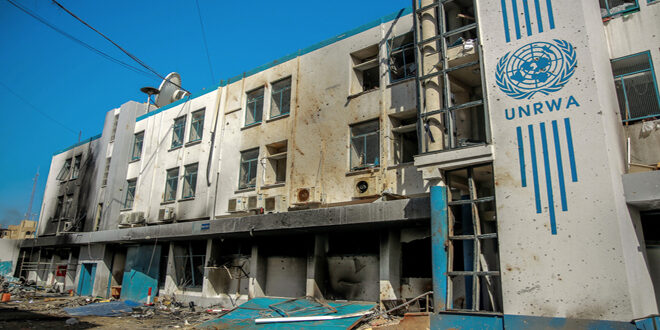The Palestinian Ministry of Women’s Affairs warns of the serious consequences of the occupation’s ban on UNRWA’s work
The Palestinian Ministry of Women’s Affairs warned of the repercussions of the Israeli occupation entity’s ban on the work of the United Nations Relief and Works Agency for Palestine Refugees (UNRWA), and its disastrous effects on refugee women and their families in light of the difficult humanitarian conditions in the Gaza Strip and the West Bank.
WAFA news agency quoted the ministry as saying in a report today about the repercussions of banning UNRWA, that the ban will deprive 324,000 students of the right to education, including 278,000 in Gaza Strip and 46,000 in the West Bank, in addition to students receiving vocational training. It will also lead to the cessation of health services for refugees in the Strip and the West Bank through 140 health care centers, leading to a health disaster that directly threatens the lives of women and children, especially in Gaza, where health and humanitarian conditions are worsening as a result of the ongoing Israeli aggression for more than a year.
The ministry explained that the occupation’s decision will cause thousands of women to lose their jobs, which will increase unemployment and poverty rates. UNRWA’s educational institutions employ about 19,877 male and female employees, 9,443 of whom are in Gaza Strip and 2,215 in the West Bank. There are also 4,851 employees in the health sector, 1,015 of whom are women, in addition to women working in relief and advisory institutions supervised by the Relief Agency.
The Ministry pointed out that the loss of jobs by men working for UNRWA will directly affect women and children in these families, which will deepen the difficult economic conditions, especially in Gaza Strip. In addition, depriving women of financial support for small projects increases poverty rates, as UNRWA provides grants to support small projects in Palestine, targeting women, graduates, and people with disabilities. The cessation of these projects will increase social, health and educational challenges and the possibility of women being exposed to violence.
The Ministry called on the international community to pressure the occupation to reverse its decision to ban UNRWA, and to provide the necessary funding and support to continue its work. The Ministry called for strengthening cooperation between the United Nations and the international community to ensure the protection of the rights of Palestinian refugees, provide them with basic services, and provide humanitarian support to women and children who were greatly affected by the occupation’s decision.
Souha Suleiman

